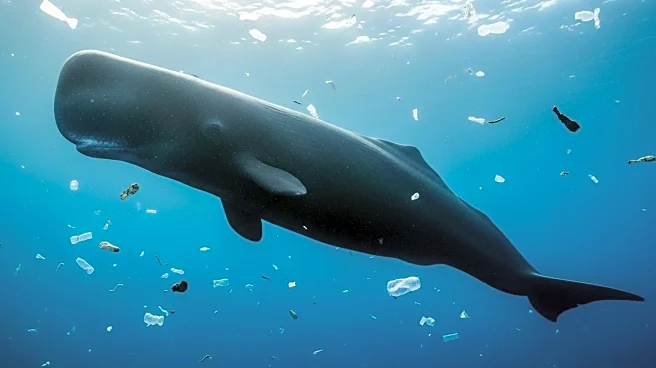What is the story about?
What's Happening?
A pygmy sperm whale was found struggling near Utila, Honduras, and later died. A necropsy revealed an 11-inch plastic bag in its stomach, contributing to digestive blockage. This incident highlights the severe impact of ocean plastics on marine life. Pygmy sperm whales are elusive, making this loss significant as it marks the first confirmed sighting of the species in the area.
Why It's Important?
The death of the whale underscores the broader issue of plastic pollution affecting marine ecosystems. With over 100,000 marine mammals dying annually due to plastic ingestion, this event highlights the urgent need for global efforts to reduce plastic waste. The rarity of the species amplifies the tragedy, emphasizing the vulnerability of small populations to human-induced environmental changes.
What's Next?
Efforts to combat plastic pollution are underway globally, including bans on single-use plastics and promoting biodegradable alternatives. Extended Producer Responsibility laws are gaining traction, holding manufacturers accountable for product lifecycle impacts. Continued advocacy and individual actions to reduce plastic use are crucial for protecting marine life.
Beyond the Headlines
The incident raises ethical questions about human responsibility for environmental degradation. It may drive further research into the long-term ecological impacts of plastic pollution and inspire stronger international policies to safeguard marine biodiversity.















